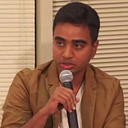2023 Reading List
3 min readDec 19, 2023
Another year has gone by in a blink, and with it comes my annual tradition of sharing the list of books I loved reading this year. I did change my approach, though. In the past, I would try my best to finish a book, even if it led me astray — a classic sunk cost fallacy. There are a lot of good books, but time is infinitesimal. So, if a book does not intrigue me, I stop and pick up the next one. It fits well with the principle, “Be professionally curious about a few topics and idly curious about many more.”
- Principles For Dealing With the Changing World Order by Ray Dalio — The latest set of principles by the renowned investor, this time around nations and empires. Every superpower will eventually concede to an emerging power, and this transition begins internally. It very well resonates with what is happening in the USA now and how myopic our worldview is. However, there is still hope if the edge of technology is maintained. As is typical of his work, the author has done an excellent job in his narration by making it methodical and data-driven.
- Dopamine Nation by Anna Lembke — Brilliant insights into our brain’s reward system and the equilibrium between pleasure and pain. In today’s environment, addiction manifests in various forms, and Lembke dwells over those nuances in an easy-to-read format. Unsurprisingly, all modern experiences, digital or real life, strive for instant gratification. A recommended read, especially pertinent for those raising digital native kids.
- Made to Stick by Chip Heath and Dan Heath — My boss suggested this book. Have you ever wondered why some ideas have a lasting impact while others fade away? “Made to Stick” answers that question. As you grow in your career, you’ll soon realize that talent/competence is only 50%. The remaining is luck and storytelling. The ability to convey your thought process in a way that makes everyone rally around is a paramount skill to learn, and this book provides the perfect recipe for it.
- What’s Our Problem? by Tim Urban — The author known for his blog “Wait But Why” has written this book in a similar style, which blends humor, simple cartoons, and insightful observations. This book is a refreshing read for a society increasingly becoming intolerant of opposing views. Confirmation bias is self-fulfilling. Urban provides a mental model for elevated thinking that will help us engage in productive open dialogues, cultivating an environment where diverse viewpoints are not just tolerated but valued.
- Measure What Matters by John Doerr — A must-read for all leaders and entrepreneurs. The biggest challenge that organizations, from startups to megacorporations, face is alignment or the lack thereof. Steering an entire company towards a unified mission is extremely hard. This book provides a well-proven framework that will help any organization thrive.
- Life 3.0 by Max Tegmark — A thought-provoking book published well before the advent of the ChatGPT era. The author skillfully categorizes the stages of human evolution into three distinct phases: biological (1.0), cultural (2.0), and technological (3.0). The final stage, technological, is characterized by AI that transcends human physical limitations. Had we read this book in the year of its publication, it would have appeared as a depiction of a distant future. However, in today’s context, this future doesn’t seem so far off — it’s happening now.
Happy holidays and a happy 2024!
